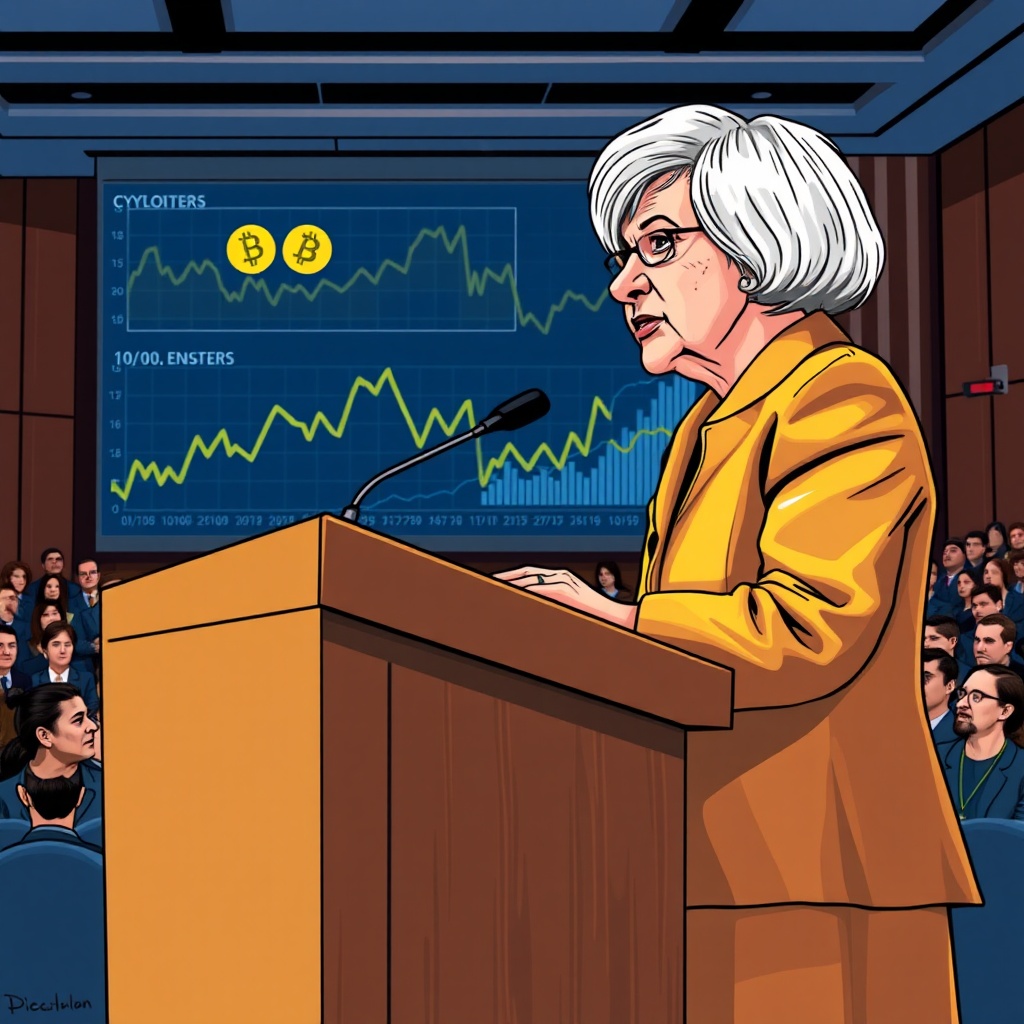Janet Yellen’s Soft Landing Statements: What is the Impact on Cryptocurrencies?
Recently, U.S. Treasury Secretary Janet Yellen expressed her faith in the recovery of the U.S. economy. Yellen emphasized that the recent employment data indicated a soft landing, contrary to an impending recession. The non-farm payroll (NFP) data for the U.S. released in August came in below expectations at 142,000. However, it still managed to show a positive increase. The unemployment rate remained at 4.2%, in line with expectations. Despite all these developments, Yellen maintains her optimism.
So, if Yellen’s expectations come true, how will Bitcoin and altcoins be affected? As we have been following on Kriptokoin.com, although the NFP data in the U.S. fell short of market expectations, Yellen stated that large-scale layoffs were not taking place. Claiming that the economy is in a deep recovery process, Yellen acknowledged that the increase in employment has slowed due to the “hiring frenzy” that emerged after the Covid-19 pandemic. However, she indicated that the U.S. is progressing towards a “soft landing” during this process.
This situation raises an important question for Bitcoin and altcoins: “Will a strengthened U.S. economy affect the performance of Bitcoin, or will it reduce investors’ interest in alternative assets like BTC?” Currently, Bitcoin charts are showing a decline towards $54,000. However, its recent performance has been quite volatile. Developments regarding inflation and employment data are impacting market sentiment, making it difficult for the leading cryptocurrency Bitcoin and other altcoins to gain traction.
Historically, Bitcoin has been an asset that benefits from economic turmoil. Investors view it as a store of value and a hedge against inflation. However, this situation could be altered by the U.S. economy. Especially if the economy continues to improve with a strong labor market and decreasing inflation, the attractiveness of alternative assets like Bitcoin may diminish.
Potential Effects on BTC
In the short term, Bitcoin’s rise may slow due to the increasing comfort of investors in established markets. Additionally, considering the recent drop in non-farm payroll data and the worst week for the S&P 500 since March 2023, there are valid reasons to be concerned. However, these events could also herald a shift towards riskier assets as the economy stabilizes.
Moreover, if Yellen’s bullish forecast proves to be overly optimistic; if inflationary pressures re-emerge or the economy contracts, a comeback for Bitcoin could be expected. For investors skeptical of centralized economic systems, Bitcoin continues to maintain its allure as a decentralized asset.





